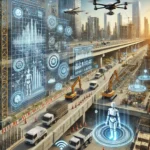Robotics for aging populations is an emerging field that addresses the growing need for innovative solutions to support the elderly. As the global population ages, with projections indicating a significant increase in the number of individuals aged 65 and older, robotics offers promising avenues to enhance the quality of life for older adults. These technologies aim to improve mobility, provide companionship, and ensure safety, thereby enabling the elderly to maintain independence and age in place. The following sections explore various aspects of robotics in eldercare, including assistive technologies, autonomous systems, and the social implications of these innovations.
Assistive Technologies
- Mobility Aids: Robotics has introduced advanced mobility aids such as exoskeletons and robotic canes, which are designed to enhance patient mobility and reduce the physical burden on caregivers. These devices help prevent falls and improve the overall mobility of elderly individuals, allowing them to navigate their environments more safely and independently(Pasupuleti, 2024).
- Rehabilitation Robotics: Rehabilitation exoskeletons are another significant development, providing support for physical therapy and rehabilitation. These devices assist in regaining strength and mobility, which is crucial for elderly individuals recovering from injuries or surgeries(Pasupuleti, 2024).
Autonomous Systems
- Indoor Enhanced Living: Autonomous mobile robots are being developed to support indoor living for the elderly. These robots can perform tasks such as medication reminders, monitoring daily habits, and alerting caregivers in case of emergencies. Such systems aim to provide a safer and more supportive living environment for older adults(Kaur & Shi, 2022) (DeFreese et al., 2019).
- Smart Living Technologies: The integration of smart living technologies in homes is a growing trend, allowing elderly individuals to age in place. These technologies focus on creating a human-centered approach that considers the unique needs and challenges faced by older adults, ensuring that the solutions are truly beneficial(Miller et al., 2021).
Social Implications
- Companionship and Emotional Support: Eldercare robots can serve as companions, providing emotional support and reducing feelings of loneliness among the elderly. These robots can take on various forms, such as anthropomorphic or zoomorphic designs, to offer companionship and cognitive stimulation(Zhang et al., 2024).
- Ethical Considerations: The introduction of robotics in eldercare raises ethical concerns, including issues of autonomy, social isolation, and the potential for reduced human interaction. It is crucial to address these concerns to ensure that the deployment of robotic solutions does not inadvertently harm the well-being of older adults(Zhang et al., 2024).
While robotics holds significant potential to transform eldercare, it is essential to consider the broader implications of these technologies. The successful integration of robotics into the lives of older adults requires a careful balance between technological innovation and the preservation of human dignity and autonomy. As the field continues to evolve, ongoing research and development must prioritize the needs and preferences of the elderly to ensure that these solutions truly enhance their quality of life.
Bibliography
- Kaur, P., & Shi, W. (2022). Poster: Autonomous mobile robot for indoor enhanced living. IFIP International Information Security Conference, 299–301. https://doi.org/10.1109/SEC54971.2022.00038
- DeFreese, V., Wright, T., Robalino, I., & Vesonder, G. T. (2019). Robotic Solutions for Eldercare. Ubiquitous Computing, 389–394. https://doi.org/10.1109/UEMCON47517.2019.8992927
-
Zhang, Y., Luo, L. X., & Wang, X. (2024). Aging with robots: a brief review on eldercare automation. Interdisciplinary Nursing Research. https://doi.org/10.1097/nr9.0000000000000052Miller, J., Bernstein, M. J., & McDaniel, T. (2021). Next Steps for Social Robotics in an Aging World. IEEE Technology and Society Magazine, 40(3), 21–23. https://doi.org/10.1109/MTS.2021.3101931Pasupuleti, S. (2024). The Impact of Robotics on Elderly Care: A Focus on Assistive Technologies and Patient Mobility. Indian Scientific Journal Of Research In Engineering And Management, 08(12), 1–6. https://doi.org/10.55041/ijsrem20296








